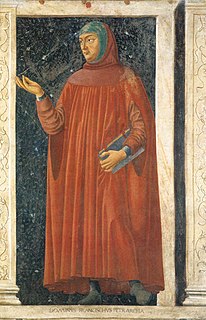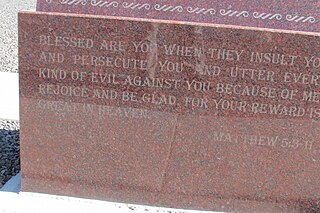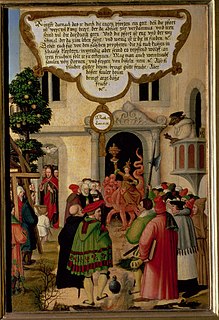In the Russian language the word glasnost (; Russian: гла́сность, IPA: [ˈɡlasnəsʲtʲ] has several general and specific meanings. It has been used in Russian to mean "openness and transparency" since at least the end of the eighteenth century.

Music is the art of arranging sounds in time to produce a composition through the elements of melody, harmony, rhythm, and timbre. It is one of the cultural universal aspects of all human societies. General definitions of music include common elements such as pitch, rhythm, dynamics, and the sonic qualities of timbre and texture. Different styles or types of music may emphasize, de-emphasize or omit some of these elements. Music is performed with a vast range of instruments and vocal techniques ranging from singing to rapping; there are solely instrumental pieces, solely vocal pieces and pieces that combine singing and instruments. The word derives from Greek μουσική ; see § Etymology and glossary of musical terminology.
The Neoproterozoic Era is the unit of geologic time from 1,000 million to 541 million years ago.

Periodization is the process or study of categorizing the past into discrete, quantified named blocks of time. This is usually done in order to facilitate the study and analysis of history, understanding current and historical processes, and causality that might have linked those events.

Sexuality and gender identity-based cultures are subcultures and communities composed of people who have shared experiences, backgrounds, or interests due to common sexual or gender identities. Among the first to argue that members of sexual minorities can also constitute cultural minorities were Adolf Brand, Magnus Hirschfeld, and Leontine Sagan in Germany. These pioneers were later followed by the Mattachine Society and the Daughters of Bilitis in the United States.

Japanese calendar types have included a range of official and unofficial systems. At present, Japan uses the Gregorian calendar together with year designations stating the year of the reign of the current Emperor.

The Grand Slam tournaments, also referred to as majors, are the world's four most important annual tennis events. The tournaments offer the most ranking points, prize money, public and media attention, the greatest strength and size of field, and greater number of "best of" sets for men, which is 5. The Grand Slam itinerary consists of the Australian Open in mid January, the French Open from late May to early June, Wimbledon in late June to early July, and the US Open in August–September. Each tournament is played over a two-week period.
An art movement is a tendency or style in art with a specific common philosophy or goal, followed by a group of artists during a specific period of time, or, at least, with the heyday of the movement defined within a number of years. Art movements were especially important in modern art, when each consecutive movement was considered as a new avant-garde movement.

Respect, also called esteem, is a positive feeling or action shown towards someone or something considered important or held in high esteem or regard. It conveys a sense of admiration for good or valuable qualities. And it is also the process of honoring someone by exhibiting care, concern, or consideration for their needs or feelings.
A decade is a period of 10 years. The word is derived from the Ancient Greek: δεκάς, romanized: dekas, which means a group of ten. Decades may describe any ten-year period, such as those of a person's life, or refer to specific groupings of calendar years.

Torah ark refers to an ornamental chamber in the synagogue that houses the Torah scrolls.

Matthew 5:11 is the eleventh verse of the fifth chapter of the Gospel of Matthew in the New Testament. It is the ninth verse of the Sermon on the Mount. Some consider this verse to be the beginning of the last Beatitude, but most disagree. They see it as more of an expansion on the eighth and final Beatitude in the previous verse.

Established in 1994, the Cane River Creole National Historical Park serves to preserve the resources and cultural landscapes of the Cane River region in Natchitoches Parish, Louisiana. Located along the Cane River Lake, the park is approximately 63 acres and includes two French Creole cotton plantations, Oakland and Magnolia. Both plantations are complete in their historic settings, including landscapes, outbuildings, structures, furnishings, and artifacts; and they are the most intact French Creole cotton plantations in the United States. In total, 65 historic structures and over a million artifacts enhance the National Park Service mission as it strives to tell the story of the evolution of plantation agriculture through the perspective of the land owners, enslaved workers, overseers, skilled workers, and tenant farmers who resided along the Cane River for over two hundred years. This park is included as a site on the Louisiana African American Heritage Trail.

Phetracha was a king of the Ayutthaya kingdom in Thailand, usurping the throne from his predecessor King Narai and originally settled in Phluluang village. His dynasty, the Ban Phlu Luang dynasty, was the last ruling house of the Ayutthaya kingdom. Originally a member of king Narai's extended family, he was a trusted councilor of Narai, and the Director-General of the Royal Department of Elephants. However, in 1688 he led the Siamese revolution of 1688, had Narai's heirs executed, and by marrying Narai's only daughter took the throne of Ayutthaya kingdom upon Narai's death. He opposed the pro-French policies of Narai, ejecting the French officers and some other French citizens from the kingdom, and launched the Siege of Bangkok, to exile all French troops from Siam. Since then, Siam and France have only contacted a few times. However, Siam trade with China flourished more than ever, causing chronicles in later times to refer to this era as the "prosperous country era".

Matthew 7:15 is the fifteenth verse of the seventh chapter of the Gospel of Matthew in the New Testament and is part of the Sermon on the Mount. This verse begins the section warning against false prophets.

In Western usage, the phrase post-war era usually refers to the time since the end of World War II. More broadly, a post-war period is the interval immediately following the end of a war. A post-war period can become an interwar period or interbellum, when a war between the same parties resumes at a later date. By contrast, a post-war period marks the cessation of conflict entirely.

Classical music is art music produced or rooted in the traditions of Western culture, including both liturgical (religious) and secular music. Historically, the term 'classical music' refers specifically to the musical period from 1750 to 1820. In a more general sense classical music refers to Western musical traditions considered to be apart from or a refinement of western folk music traditions and encompasses the broad span of time from before the 6th century AD to the present day, which includes the Classical period and various other periods. The central norms of this tradition became codified between 1650 and 1900, which is known as the common-practice period.

Nercwys is a rural village and community in Flintshire, Wales, which is surrounded by open countryside. The community population taken at the 2011 census was 585. The older, Anglicised spelling of Nerquis can sometimes be found. It has a small school and a local bus service to Mold which is around 3 miles away.
Armenians in Central Asian states: Uzbekistan, Kazakhstan, Kyrgyzstan, Tajikistan and Turkmenistan, were mainly settled there during the Soviet era for various reasons.













